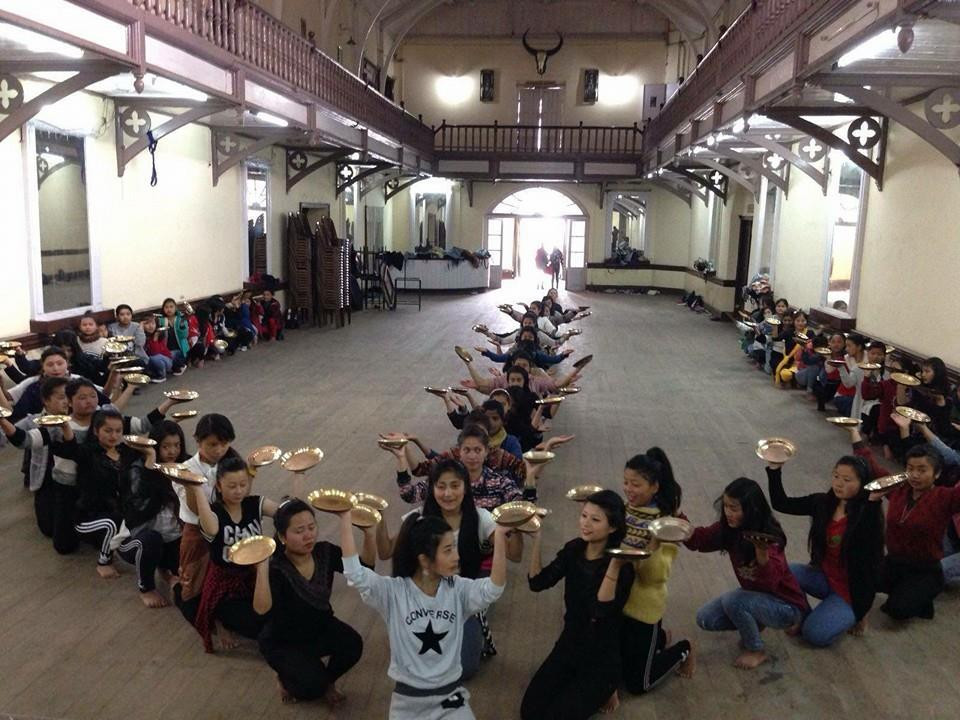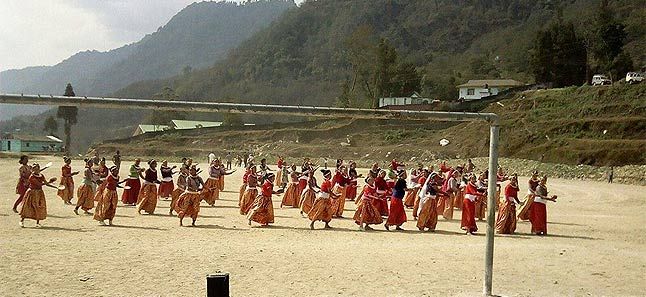04 Mar, Gangtok : The beautiful mountains go way beyond their physical magnificence and mesmerising scenery; their cultural heritage and folklore can be equally spellbinding. From the lands of Sikkim and North Bengal, the traditional dance form Maruni, will enthral an estimated 35 lakh people at the World Culture Festival hosted by the Art of Living Foundation in March in New Delhi.
About 350 participants between 15 to 45 years, from various districts of Sikkim, Darjeeling, Jalpaiguri, Alipurduar, Dooars, and some remote villages falling under the Gorkhaland Territorial Administration will congregate in New Delhi to bring to the world the scintillating folk dance with its own folklore. Sikkim alone counts for 118 young dancers; most of them hailing from West District. Others are from Namchi in South Sikkim and Kokaley and Khesey in East Sikkim. Hon’ble Minister for Cultural Affairs & Heritage Department Government of Sikkim Shri. G.M. Gurung is likely to attend the three-day festival. A huge contingent of Art of Living volunteers from Sikkim will be travelling to New Delhi to be part of this extravaganza.

Interestingly, besides the professional folk dancers, a significant number of the participants are from schools and colleges, the students displaying their eagerness to be part of a historical event. Majority of the participants are women. Karuna Pradhan, Coordinator of the Maruni dance form, says “In the ancient days, the men would adorn women’s clothes and play the role of women as women were forbidden from participating. This has of course changed now.”
The Maruni dance, which essentially incorporates seven different folk forms, will have the Samala type being performed during the culture festival. Depicting a celebration, where a male dressed as a joker, invites the ridicule of women, the dance form will display different moods as well as joyous events of the past.
Women balancing and dancing with brass plates, the beating of the drums, the swift movement of the feet to the fast drum beats assure a rejuvenating foot tapping experience for the audience while bringing to the notice of the world, forgotten folklore and cultural history. “The traditional costume that the participants will be attired in is vibrant in its colours with equally elaborate ornaments to complement them”, adds Karuna.

Courtesy : The Voice of Sikkim
